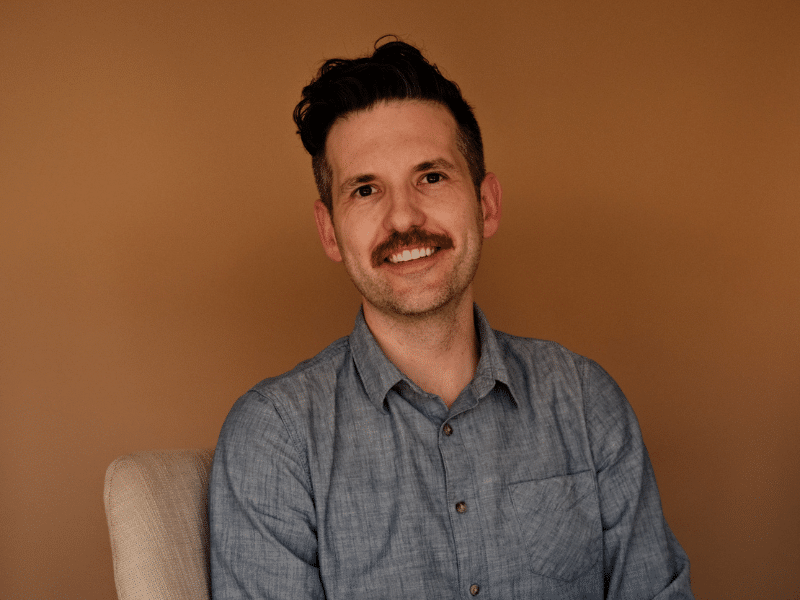Reducing anxiety is easier when it is understood.
Many people can notice the thoughts they have when they are anxious or even where they feel their anxiety in their body. However, fewer people are able to understand their anxiety. It can be so hard! To be anxious about something is to be afraid. It makes us avoid certain feelings or situations. When your knowledge of your anxiety is limited to what you need to avoid or how it is felt in your body, you are lacking the information necessary to activate change.
Anxiety is a warning light.
Imagine if everytime time a check engine light lit up on your dashboard you took your car to a mechanic and asked the mechanic to turn off the light without fixing the problem in the engine. You may find a shady mechanic willing to do that for you, but you would never be solving the reason for the warning light. You may be feeling that warning light come on right now in your life. If that is you, what I want you to know there are multiple steps you can likely take today to begin reducing your anxiety. However, I also want you to know that your anxiety is a warning light pointing to something that is not working. To truly reduce your stress in a way that will help keep it at a manageable level you will need to understand it, not simply turn it off.
Why anxiety is so hard to understand.
It is hard to understand the things about ourselves that we are ashamed about. It is natural for people to attempt to hide or cover up their anxiety because they feel like it is bad. We hide things we feel guilty about, and we try to cover up parts of ourselves that cause us to feel shame. Trying to hide and cover anxiety compounds the suffering it brings. People with high levels of manageable anxiety become exhausted from their attempts to hide the guilt and shame that accompanies their inner distress. I know many therapists that keep Chinese finger traps in their offices as a way to demonstrate that sometimes putting more energy into something makes the situation worse. It is natural for people to attempt to hide or cover up their distress because they want to force it away or hate it away. Sadly, this simply makes it even harder to understand. You cannot hate away anxiety.
%
Amount of US Adults with an Anxiety in the Past Year
%
Amount of US Adult Females with an Anxiety in the Past Year
%
Amount of US Adult Males with an Anxiety in the Past Year
%
Percentage of US Adults That Experience an Anxiety Disorder During Their Lifetime
Statistics taken from the National Institute of Mental Health.
Understanding gives you freedom.
There is a difference between feeling anxious and recognizing that you are feeling anxious. One requires that you reflect on your experience. When you are reflecting on the experience there is a degree of separation in the observance. This might seem inconsequential, but expanding that gap between your experience and your reflection of the feeling is often crucial to beginning to manage anxiety. By reflecting on your anxiety you can make the choice to continue trying to solve the problem or give yourself permission to come back to it later. It is in this awareness that you can remain tense and overwhelmed, or you can actively soothe yourself and provide sensory input that relaxes your body. The basic steps to manage anxiety differ for each person, but it is commonly helpful to listen to music, exercise, take a bath, go for a walk, or practice mindfulness meditation. It takes naming the feeling, recognizing that you can do something different, and then making the choice.
Remaining in the moment.
This likely feels insufferable to many with anxiety, which is why working on this often requires using two minds. This can be a close friend, a spouse, a family member, a spiritual director, or a psychotherapist. Working with another person is powerful because it helps you remain in the moment long enough to gain the understanding to generate change. Being in the moment allows you to name the specific feeling, “I am anxious about being rejected if I ask her out” or “I am anxious about being abandoned by him if I allow myself to be close to him.” To truly get specific in the description may be painful, scary, or frustrating. For some, it can feel meaningless or inconsequential. All of these are fine responses and worth understanding in their own right. The reason the anxiety remains is that the related emotions have not been properly recognized, processed, or understood. A genuine understanding of emotions that have been overwhelming for you by yourself often requires being able to have another person to help you recognize and process them. There is simply no substitute for an empathic human connection to a part of yourself that feels unworthy of love. Needing someone else doesn’t make you weak or bad. Needing someone else means you are human. We are hurt within relationships, so it makes sense that we heal and grow within relationships.
Getting Help
If you have been stuck in reducing your anxiety, consider the supportive relationships in your life that may be able to help you understand it better. If you believe you would benefit from individual or group therapy, feel free to contact me personally about how to identify a therapist that would be a good fit for you. You can reach me at (760) 334-6262 or by email at drkessler@coastaltherapygroup.com. If working with me or someone at our practice is not a good fit for you, there are plenty of great therapists
Dr. Reid Kessler is a Licensed Clinical Psychologist (PSY29855) with a counseling practice in Encinitas, CA. He specializes in helping young adults (20s & 30s) regain their strength and begin to feel calm, confident, and connected.
Dr. Kessler is now accepting new individual clients locally in his office in Encinitas, or via video conferencing to people throughout state of California or international.


